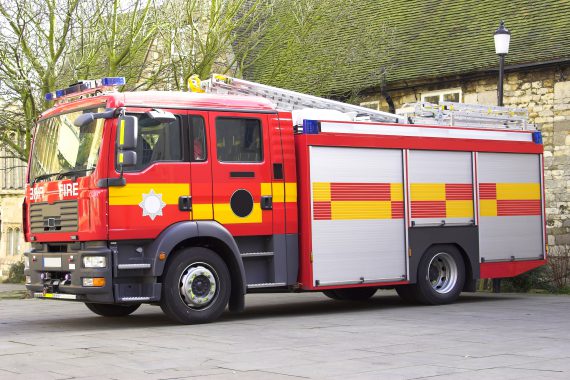Exclusive NHS England has written to GP practices asking them to check whether their patients who live in high-rise buildings have a working fire alarm and know how to get out of the building should it sound.
It follows a request from the National Fire Chiefs Council to NHS England, among other public health and housing bodies and local authorities, to help promote free fire safety visits available to residents.
NHS England’s London team asked that ‘frontline staff seeing patients or clients in high rise premises’ run through the four-question list and, if the patient answers no to any question, refer them for the check.
Londonwide LMCs said that their GP colleagues were ‘dealing day-to-day with those directly affected’ by the tragedy in Grenfell Tower and they are ‘acutely aware’ of the importance of protecting patients, and in particular the elderly, from potential fire risks.
But they warned that GPs’ days are already filled to bursting and diverting time to identifying which residents need fire safety advice would be ‘detrimental’ to patients – and could even put clinicians at risk.
In the wake of the tragedy, the letter from the NFCC asks for their help engaging with staff in ‘regular contact with people living in high-rise premises (i.e. housing officers, environmental health officers, housing trusts, health workers, carers etc)’.
It asks for their help promoting ‘basic but very important fire safety information and questions to people living in these types of dwellings’.
The questions GP are expected to ask high-rise residents are:
- Does the householder have a working smoke alarm?
- If the smoke alarm activates, would the householder be able to hear it?
- Does the householder know what to do if the smoke alarm activates?
- Is the householder able to get out of the premises if the smoke alarm activated?
If the householder answers no to any of the above questions, it says practices should make a referral to them for a home fire safety visit.
The request to practices, from NHS England (London) emergency preparedness, resilience and response manager Graham Leedham, says: ‘This is primarily targeted at organisations who have staff working in the community but may also be pertinent to those who have contact with persons living in high rise accommodation.’
Dr Michelle Drage, chief executive of Londonwide LMCs, told Pulse that GPs are at capacity and it was the role of a landlord to ensure their tenants were safe and informed.
Dr Drage said: ‘The National Fire Chiefs Council’s aims are laudable, but it is the responsibility of the landlords and management agencies of high-rise blocks to make sure residents are familiar with fire safety arrangements and they should be the ones providing the time and resource to do so.
‘Hard-pressed GPs and practice teams already struggle to meet patients’ health needs in the ten-minutes allotted for consultations.
‘Diverting time to identifying which of 60, 70 or more patient contacts a day need fire safety advice would be detrimental to providing care and place undue risk on clinicians and their teams.’
BMA GP Committee chair Dr Richard Vautrey reiterated this was not the role of the GP but added that it was helpful for practices to know where to direct patients if they themselves raised concerns.
He said: ‘Whilst being well-intended, this is not a role for GPs to be fulfilling, although being aware about the options for a fire safety visit for those patients who raise this as a concern themselves could be helpful for practices to know about.’
An NHS England spokesperson said: ‘Following the fire at Grenfell Tower in June, the National Fire Chiefs Council (NFCC) asked that basic referral advice on fire safety is shared by a number of national organisations including NHS England, Local Authority and housing trusts.’
GP of all trades
With general practice under pressure there is a growing recognition of the need to push back against non-core work that lands in general practice, often extending well beyond fit notes and benefits support.
NHS England has pledged to work with the BMA to cut down on GPs being asked to pick up non-contractual work that should be completed by hospitals – although not a single sanction has been issued for reported breaches.
But it has also tasked GPs with prescribing hormone therapy and monitoring of patients needing specialist gender dysphoria care.
Meanwhile wide ranging public health guidance from NICE in 2015 suggested GPs would be ideally placed to conduct temperature checks in elderly patients’ homes
And the Home Office requires GPs to check patients’ nationality as part of immigration and health tourism checks, and assess whether they can hold a firearms license.
Pulse October survey
Take our July 2025 survey to potentially win £1.000 worth of tokens














